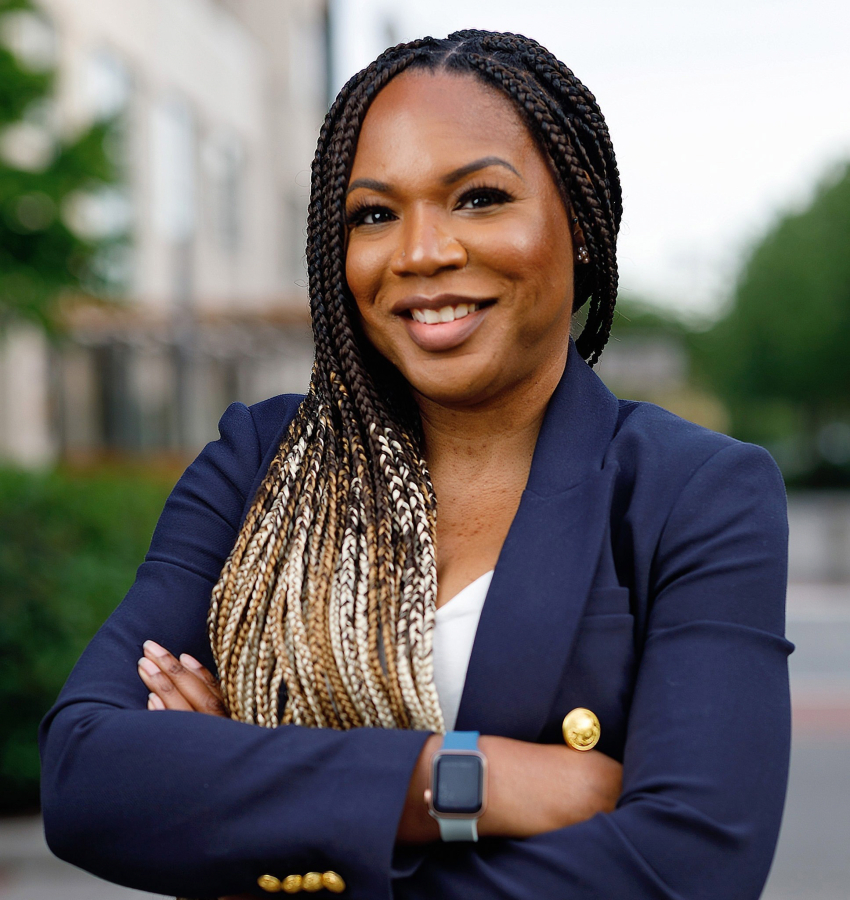A full slate of school board candidates outlined how their experiences and vision will serve families in Clark County’s second-largest school district.
The four candidates for Vancouver Public Schools’ Board of Directors Position 2 recently met with The Columbian’s Editorial Board. Sandra Zavala-Ortega, the incumbent, Chartisha Roberts, a human resources professional, Kathleen O’Claire, a certified risk manager, and Michelle Belkot, a procurement analyst, face off in the August primary.
The top two finishers out of the Aug. 3 primary advance to the November general election. Primary ballots will be mailed out beginning Friday.
Zavala-Ortega, a small-business owner and a VPS graduate, called her appointment to the school board in April “full circle.” Being a mother of a student with special needs and a voice for underrepresented and underserved groups is why she’s running for election.
“I know how hard it is to get those services, and I hope to change some of that,” she said. “I’m here as authentic as I can be.”
Zavala-Ortega and Kathleen O’Claire are both former VPS employees. O’Claire said she’s always had a need to serve, working with various socioeconomic and cultural backgrounds, and also wants to see more nuanced questions being asked and more thought-provoking conversations as COVID-19 recovery begins.
“Pandemic recovery is going to take years for our kids,” O’Claire said, “and the real work is just beginning. That’s going to be the part I’m really passionate about.”
With two young children in the district, Belkot, also a VPS graduate, stated she plans to be in the district “for a long time.” She spoke to how she brings a diverse and valuable perspective for the challenges facing the districts. She said parents she spoke to felt their voices weren’t heard by the current school board during COVID-19.
“School board directors should put the needs of children at the top of their priority list,” Belkot said. “A child’s best advocate is usually their parents, and when directors are willing to listen to the parents, they become the best advocate for all children.”
Roberts said she’s motivated to run for school board behind 12 years of experience in human resources for health care and transportation. She said she’s driven to change through policy work on a bigger level.
“I’m trying to bring it on a larger scale,” Roberts said. “We need to improve and put things in place to benefit everyone.”
One of the questions asked by the editorial board pertained to the high turnover in directors and what the board can do to build trust in the community because of it. Position 2, in particular, has had two different appointees since Mark Stoker’s resignation in May 2020. Three other directors also were first elected in 2019.
Each spoke on transparency within the community, strong communication and accountability measures. That also includes accountability and a positive working relationship with new Superintendent Jeff Snell, who began duties July 1.
The editorial board also pressed the group on their stance on critical race theory, a hot-button issue as of late. House Bill 5044 passed by the Legislature and signed by Gov. Jay Inslee requires professional training for school district staff that focuses on topics such as diversity, equity and inclusion. Local school boards have the choice about how the new requirement is met, though the language of critical race theory is not mentioned in the bill.
Belkot said she believes the leaders on the board and the district can strengthen communication about curriculum being taught.
“Racism has no place in our schools or our policies,” Belkot said. “Every student should feel safe and valued.”
Zavala-Ortega said she first studied CRT as a Saint Martin’s University student. Scholars have said critical race theory is a decadeslong academic concept — often taught in higher education — that seeks to understand inequality and how racism is perpetuated through institutions rather than individual actions or bias. Outrage over false notions about how kids are taught about race has sparked debate at local school board meetings in Clark County.
Roberts said understanding the country’s history and the complexity of it is crucial for change.
“I feel like if we’re not willing to accept the history of how the United States came to be, we’re always going to be in this internal battle.”
O’Claire added: “The biggest situation is that you have to start with the glossary. Does critical race theory mean the same thing to me as it does to you? That’s how far bare-bones back we have to go to understand what this all means.”




